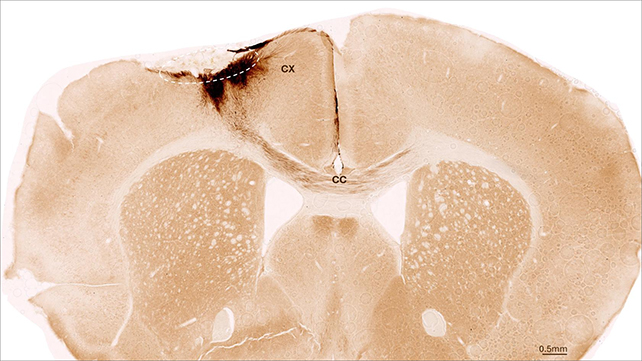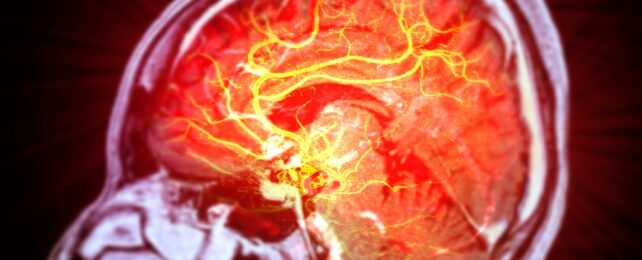Brain damage caused by blocked blood vessels may be treatable using injections of stem cells, according to a new study by researchers from the University of Zurich and the University of Southern California.
The results could one day help patients who have experienced some forms of stroke recover lost functions.
Using mice with stroke-induced brain damage, the researchers found that injections of human stem cells could successfully develop into immature brain cells. The results were dramatic: most of the implanted cells remained in place, developing features of fully functioning neurons and communicating with surrounding cells.
Related: Common Sweetener Could Damage Critical Brain Barrier, Risking Stroke
"We found that the stem cells survived for the full analysis period of five weeks and that most of them transformed into neurons, which actually even communicated with the already existing brain cells," says neuroscientist Christian Tackenberg, from the University of Zurich.
What's more, the researchers observed blood vessels self-repairing, inflammation in the brain reducing, and the blood-brain barrier growing stronger. The mice even showed signs of improved movement and coordination – a key finding, as strokes can seriously impair the body's motor control.

The new study builds on earlier work carried out by some of the same researchers, which looked at the optimal timing for injecting stem cells following a stroke. This is going to be important in developing actual treatments: it seems the brain needs to have stabilized to a certain extent after the stroke for the transplant to be effective.
While earlier studies have covered some of the same ground, Tackenberg and team say none have gone into the same level of detail as this latest one. The researchers weren't just interested in the survival of implanted cells, but also in whether they might form neurological connections.
"Our analysis goes far beyond the scope of other studies, which focused on the immediate effects right after transplantation," says Tackenberg.
At the moment, the damage that a stroke does to the brain is irreversible, and it's something that affects a quarter of the population. The internal bleeding or oxygen restriction caused by a stroke permanently destroys brain cells, which can significantly affect speech and movement.
The researchers are hopeful that, given time, stem cell therapy could be used to repair what is currently irreparable. We're already seeing multiple innovations in this area, including treatments for diabetes and vision loss.
Whether this approach could work in human brains remains to be seen, and would need to be tested over a much longer period of time.
There are still plenty of challenges ahead: any interference in the brain has the potential to go wrong. The researchers need to find a way to prevent the implanted stem cells from going beyond their original remit, for example.
"It is essential to pursue new therapeutic approaches to potential brain regeneration after diseases or accidents," says Tackenberg.
"Our findings show that neural stem cells not only form new neurons, but also induce other regeneration processes."
The research has been published in Nature Communications.
